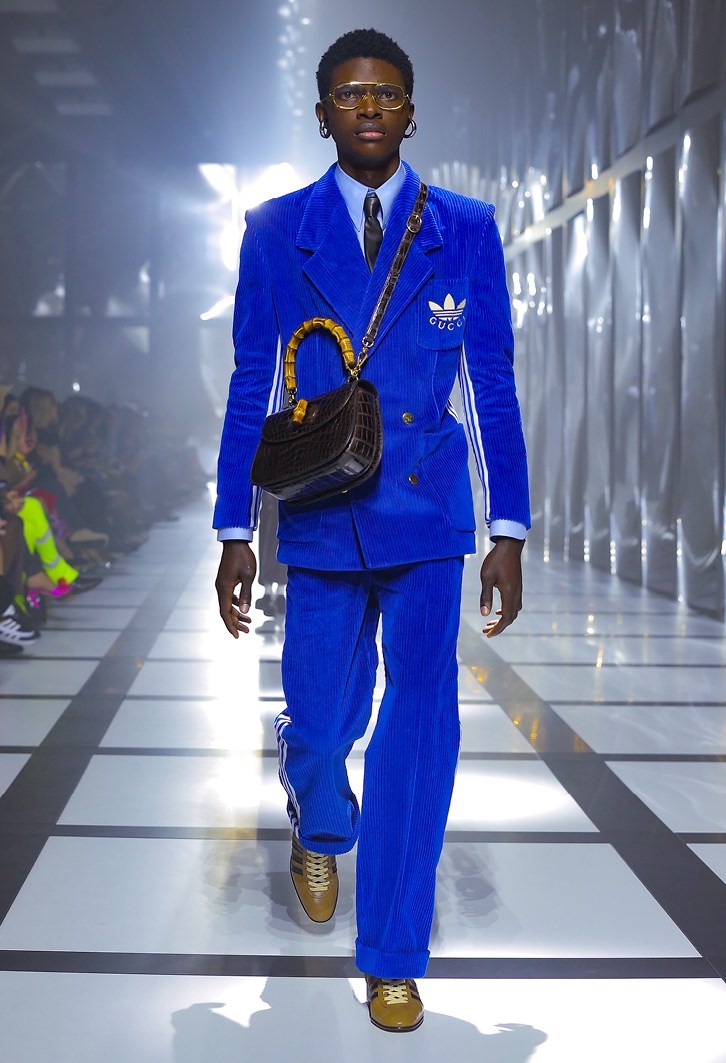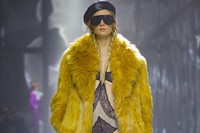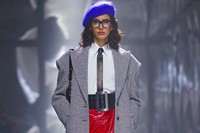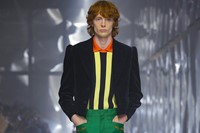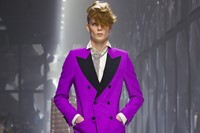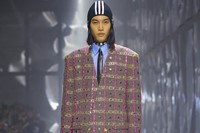For his latest Gucci collection, Alessandro Michele sent out a flip-book of the surrealist game ‘Exquisite Corpse’ – which you may know as picture consequences, the parlour game where you draw a fragment of an image without seeing the other constituent parts. The random assemblage of the resultant whole could be funny, sometimes enlightening, always unexpected. It was an interesting allusion for Michele to make between that game and the unanticipated juxtapositions that so often comprise looks in his Gucci shows – the idea of the accident or the chance is something he has always described as beautiful. He called this season ‘Exquisite Gucci’ – the last was ‘Love Parade’, and they both sound much better than ‘Autumn/Winter’ or ‘Spring/Summer’. Fitting the new moniker, there was a sense of specialness, of preciousness, permeating every garment on show.
That, however, didn’t mean it was about ballgowns. “It’s a men’s collection during women’s fashion week,” Michele stated, at his post-show press conference. “My masculine world is very, very broad. Men have opened a dialogue with a feminine world and I was thinking about the opportunity to show this.” And then he shrugged. “And women like men’s suits.” Michele has always blurred the lines between genders – it’s, strangely, an act that can still provoke even in 2022. And although Michele talked about menswear, it felt like he was using the term with a pinch of irony – his suits, in bright colours, embroidered and bedazzled and, often, triple-striped in a new far-reaching collaboration between Gucci and Adidas – were hardly city-boy masc. “The idea,” he said, “was to break some codes.”
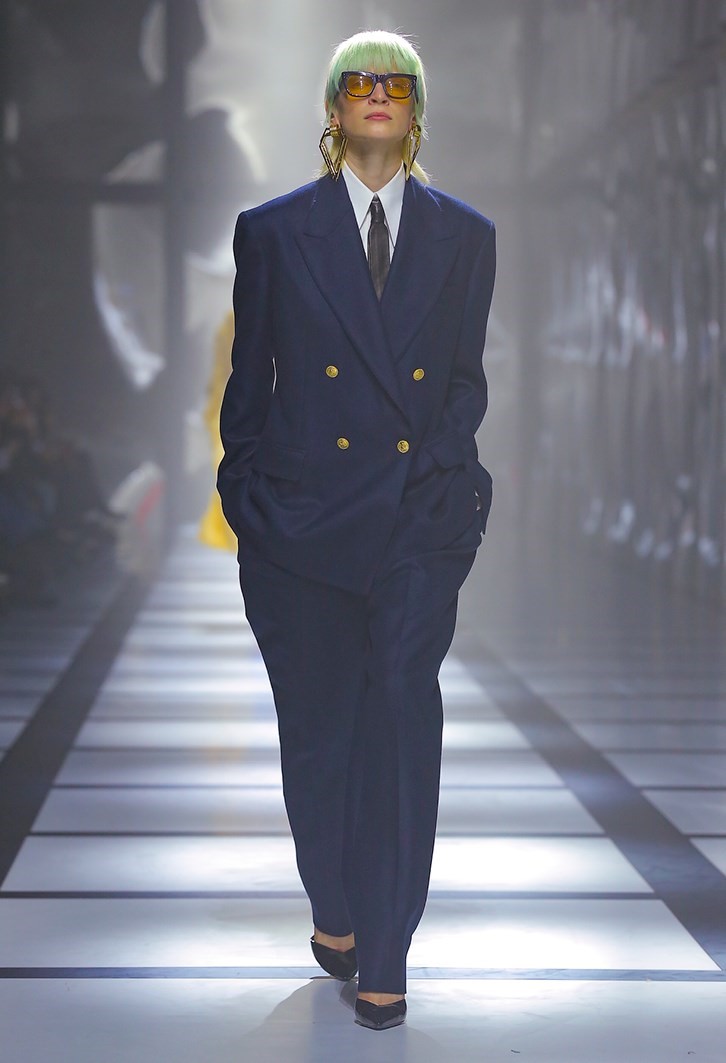
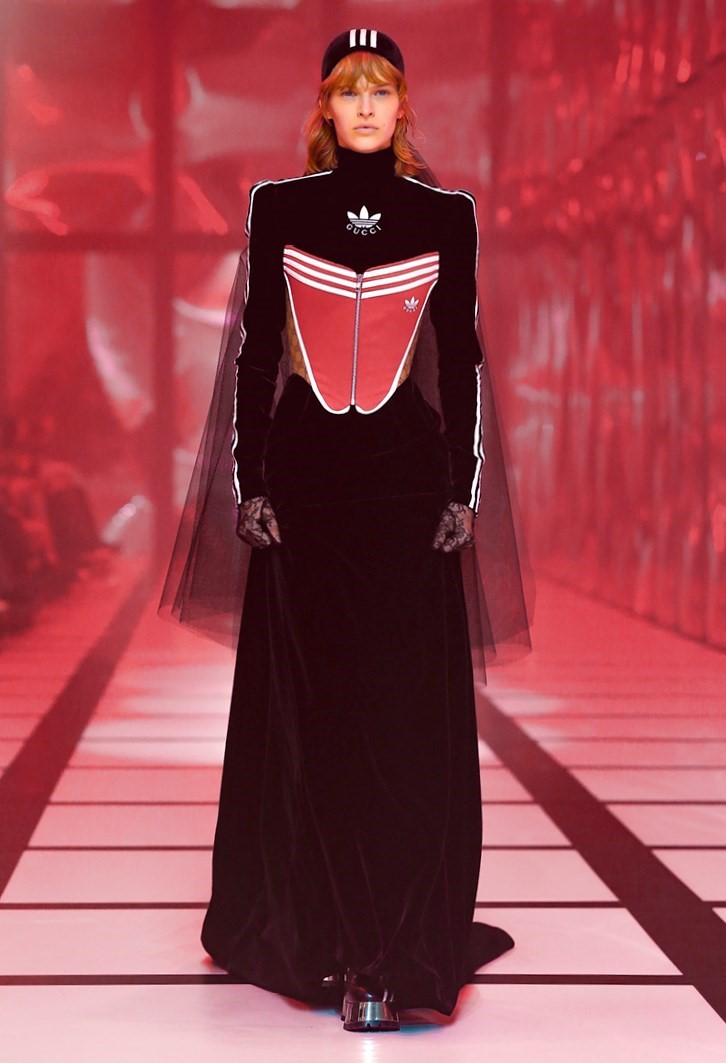
The whole show took place in a mirrored box, which reflected, refracted and distorted Michele’s models like a kaleidoscope, or even a funhouse, the mirrored panels flexing and sending beams of light bouncing around the venue. “I use the metaphor of the magical mirror to approach the phantasmagorical power of fashion,” Michele said – and, of course, fashion can easily transform. At its most basic, you can wear the clothes of another gender and ‘become’ them, at least within that moment. Michele was playing with those kind of ideas. ‘Gucci Metamorfosi’ was written on the back of jackets, on labels attached to the wrists of others, and the collection – like that game of Exquisite Corpse – was constantly juxtposing and fusing the unexpected. Adidas stripes slicked down leather equestrian boots, or corseted and puff-sleeved evening gowns like echoes from history. Baseball caps were fused together, a brim at forehead and nape, and the Adidas trefoil was perched above the word ‘Gucci’.
Alessandro Michele enjoys pop culture totems – his use of logos, slogans and imagery has always been arresting, often pulling them out of context entirely, transforming them simply through their environment. It’s a classic surrealist game – French surrealist André Breton often cited a phrase, pulled from the obscure work of the 19th-century writer Comte de Lautréamont, as foundational to the movement’s doctrine – “as beautiful as the chance encounter of a sewing machine and an umbrella on an operating table.” You get that kind of feeling with Michele’s use of icons, Mickey Mouse on a Gucci-G handbag, the house’s iconic Jackie bag tramlines with the logo of another fashion house. These kind of games are designed to intrigue, to slightly unsettle, to ultimately seduce.
Here, Michele played with the elegance of sportswear – which could be a trite phrase, until you see it applied to a billowing evening gown, and realise its true power. It’s also about reflecting and distorting the language of fashion, rules that are somehow still in place between what constitutes ‘streetwear’ and ‘luxury’. Then again, it also reflects what people wear everyday. “People want to have a dialogue with life,” Michele stated. And his work mirrors that – excuse the pun.
